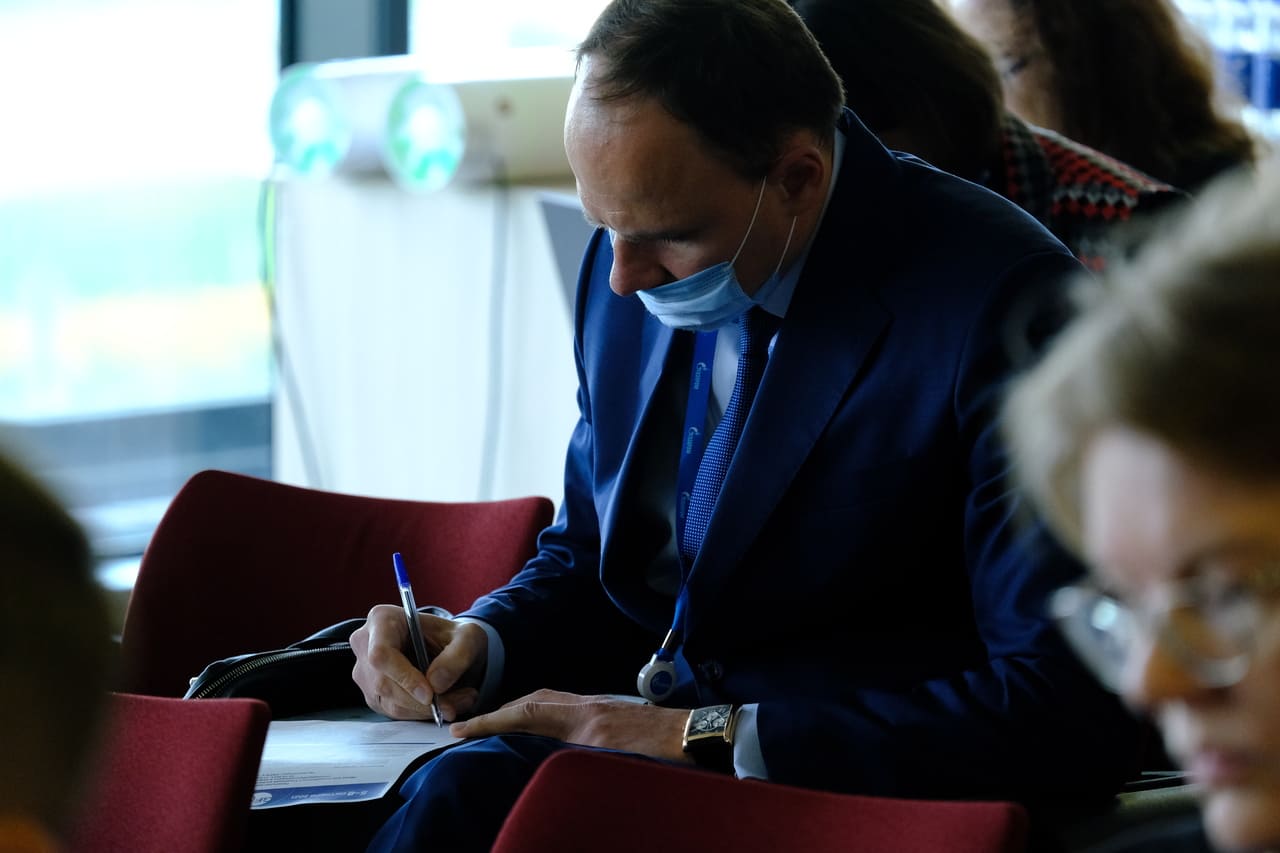
The participant discussed how ethics officers promote business margins.
Trends of compliance in gas processing and petrochemical companies and compliance as a part of sustainable development were two topics discussed at SPIGF 2021 by gas processing and petrochemical business officials at the panel discussion Fashion or Need? Compliance and Ethics Development Trends in Gas and Petrochemical Companies.
Compliance is correlation of the company’s activities with its internal documents, regulations and procedures, as well as the legal demands. It ensures internal control over the company’s compliance with the law, helping with possible risk and loss prevention.
Today, the basic trend of compliance development in major companies is that their directors don’t just think about it, but also make it a part of their work. Previously, compliance was the matter that mainly interested pharmaceutical and financial companies, but today the list of entities concerned about this management tool has extended. The state stiffens its regulations, which makes it essential for large companies and businesses to continuously monitor their risks and comply with the laws in force.
According to Viktoria Trushina, Head of Internal Audit at Zarubezhneft JSC Corporate Group, properly adjusted compliance increased a company’s EBITDA by 2% and its margin by 5%, as it helps the company comply with sustainable development goals, minimize its financial and fraud risks. All of these help the companies protect their good business reputation. At the same time, if the companies operates at the global market, they have to consider both Russian and foreign local laws.
Sibur Holding has been introducing their compliance system for about 8 years. They started in 2013, when the revised Federal Law 273 “About Corruption Management” was introduced, amended with Clause 13.3 “Companies’ Responsibility as regards to Corruption Prevention Arrangements”. Veronika Kiseleva, Compliance Manager at Sibur LLC and Director of Russian Business Ethics Network in the line of “Ethics and Compliance in the Gas Processing and Petrochemical Business” shared their methods of compliance introduction into the corporate structure.
One of the basic issues with compliance that all of the discussion participants acknowledged is that this is an emerging sector that results in a lack of competent experts. “We take efforts to train experts on our own,” says Veronika Kiseleva. According to her, this work requires people that are perfectly aware of the internal corporate proceedings and systems.
“There are no ready-made experts. We have to train them. We engage specialists from legal companies and risk management departments,” resumes Lazzat Nurmagambetova, Chief Compliance Officer, National Company KazMunaiGaz JSC.
The lack of compliance experts is especially critical in Russian regions, where people have just set to learning how to keep up with ethical requirements when doing business. Veronika Kiseleva brings into focus that the market can hardly wait for compliance management standards to be introduced next year. The Ministry of Labor is already working on them in collaboration with the National Compliance Association. Today, such experts are called ethics officers, and they pattern, shape and develop ethical business proceeding systems in the companies. However, to make this work companies’ heads have to be interested in having a compliance system, and according to Natalia Goriyenko, Director at Deloitte Forensic, it is a good thing when compliance officers report straight to the companies’ boards of directors.